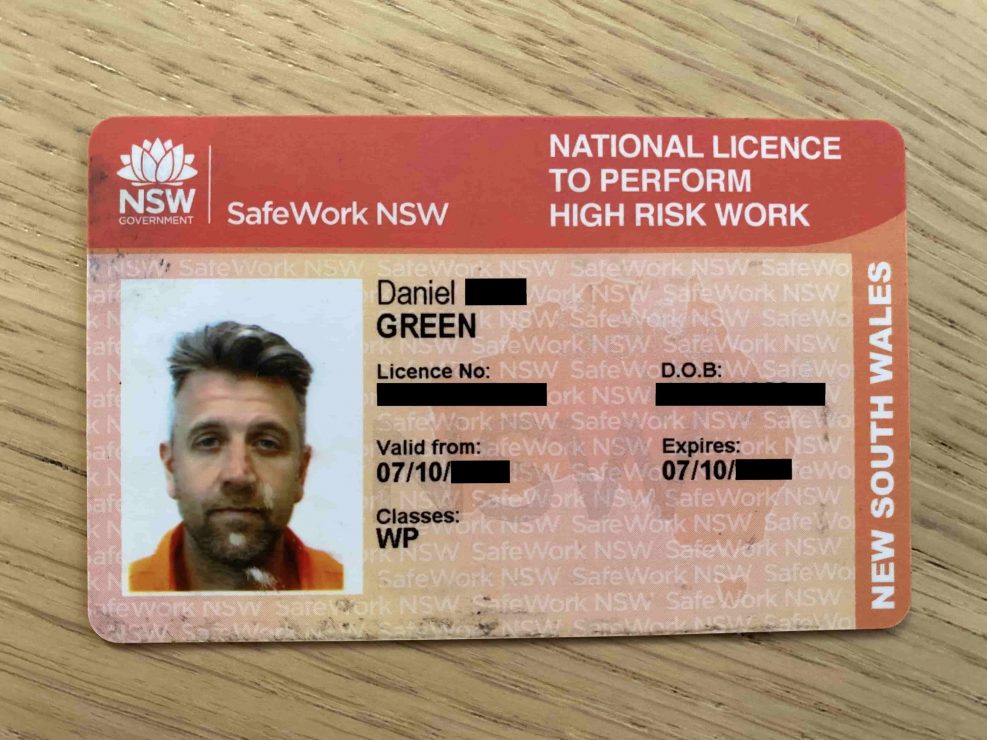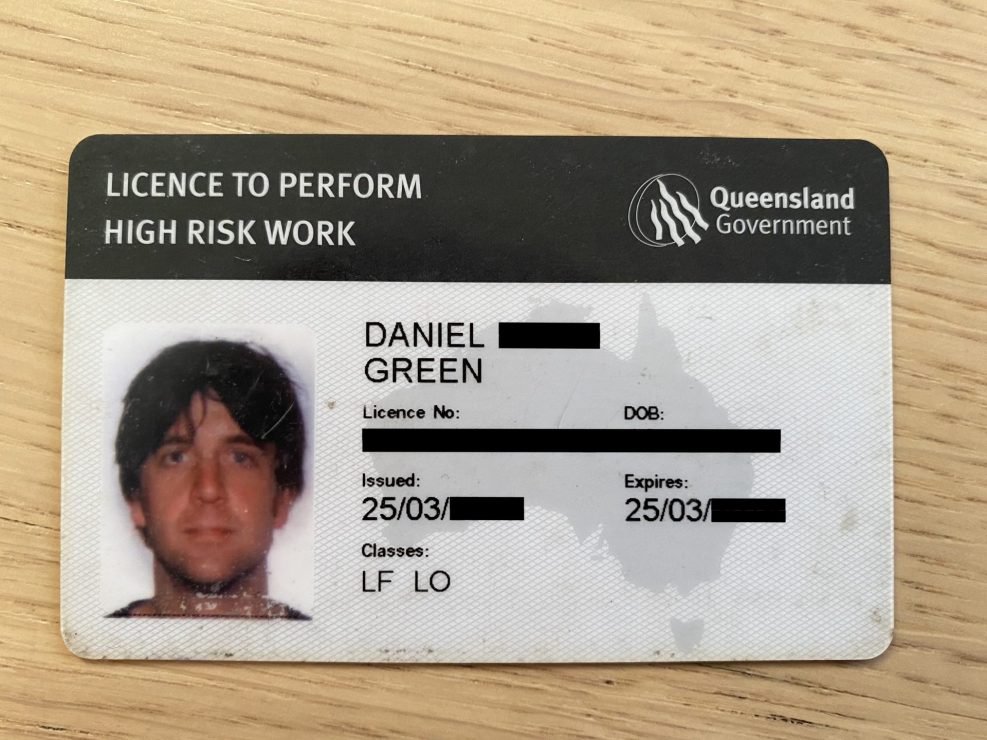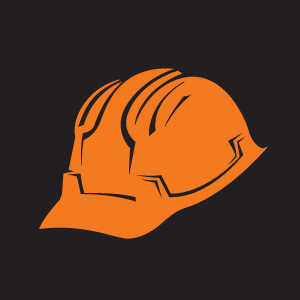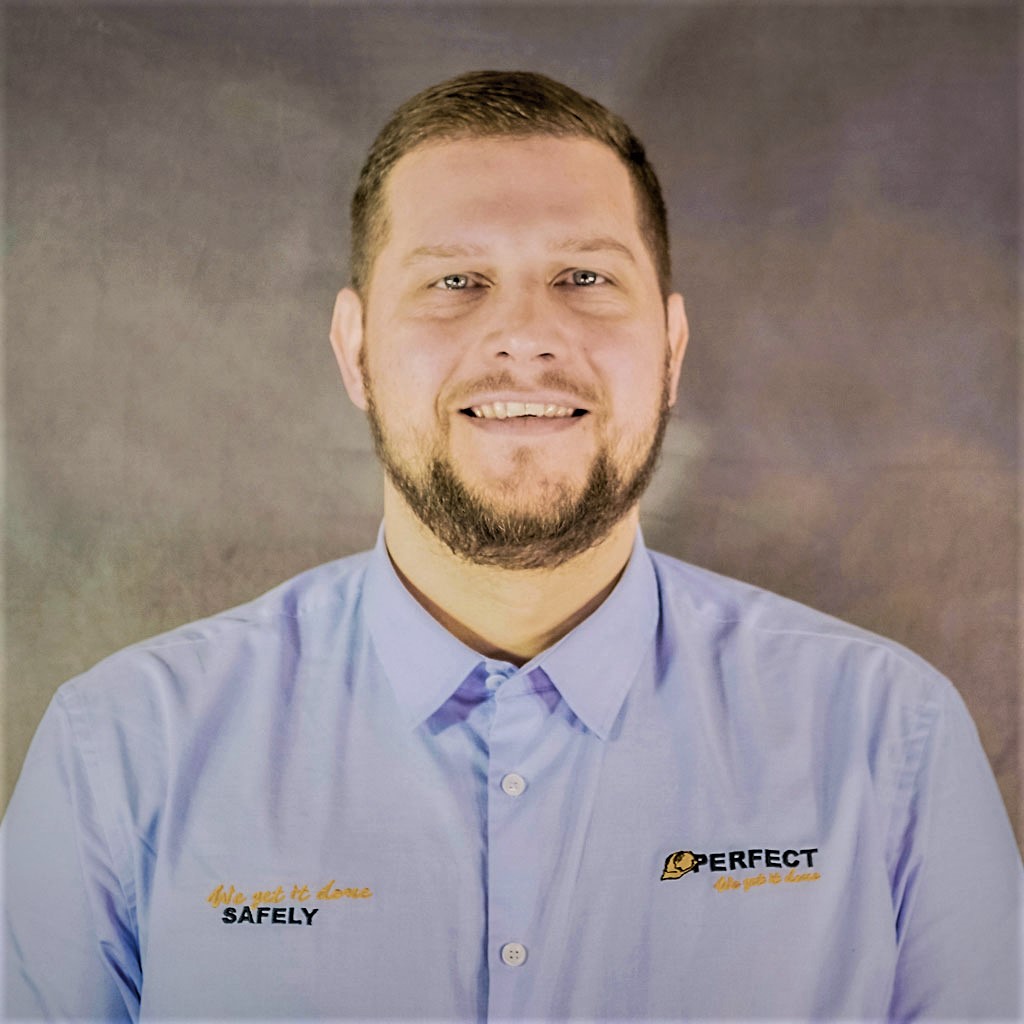What Is A HRW Licence And How Do I Get One?
- magda

By Daniel Green
I reckon ten times a day we get asked about High Risk Work licences. That’s fifty times a week, 200 times a month or 2400 times in a single year. So to save our poor, worn out vocal chords it’s high time we put something in writing. Behold, the definitive guide for the mighty HRW licence.
What Is It?
An HRW is simply an identification card that proves that the cardholder is currently qualified to operate the types of machinery listed on it. It is issued by the government of the state you did the training in, and contains:
- The cardholder’s photo
- That state’s safe work governing body logo
- Your date of birth
- Your photo
- The HRW licence number
- The tickets you hold [class of machinery you can operate]
- Issue & expiry dates
- Your signature on the back
It also bears the words LICENCE TO PERFORM HIGH RISK WORK or NATIONAL LICENCE TO PERFORM HIGH RISK WORK or similar, and has some funky watermarks that would be very difficult to forge. So don’t.


What’s A Ticket?
A ticket is an old school term for a qualification that usually involves machinery operation. You can have many high risk tickets but only one licence.
Why Do Some Machines Require An HRW Licence And Others Do Not?
Great question and we’re glad you were thinking it. The short answer is that these machines have been deemed the most dangerous. They have the most risk of harm to the operator or to others – or both.
The longer answer is that wherever there’s a high risk activity the NSW government likes to get involved. Probably has something to do with keeping us above ground. Well, one of the bodies that keeps an overwatch on occupational safety is SafeWork [in Queensland and Victoria they’re called Work Safe – original hey]. SafeWork NSW is charged with policing, enforcing and investigating unsafe work practices. Every time there’s a workplace incident they must be notified, and because they’ve been around since 1989 there’s over thirty years of data they can lean on in the creation of rules and regulations. If anyone knows what machines deserve to be on a HRW licence – it’s them.
So It’s Dangerous?
Unfortunately yes, it can be. Some of the machines that fall under the HRW banner can reach a very long way and fall over, some can change their direction of travel very fast and fall over, some can move their centre of gravity very fast and.. well.. fall over. Okay, so they don’t all just fall over but without proper training, licensing and operation some machines can be very dangerous. Hence the term High Risk.
Can I Lose My HRW Licence??
Damn straight you can. As the operator, you could choose to take unnecessary risks that can cause damage, injury or death and your licence can be suspended or revoked.
So It’s Like A Car Licence, There’s Points?
No. SafeWork just take your licence away.
It Seems Unfair.
Does it though? Let’s say you’re in a 25m knuckle boom on Pitt Street in the CBD on Friday during peak hour. You notice some tourists taking photos of you, so while at full extension you decide to drive the thing down a flight of stairs. Just because it might get on TikTok. Except because the thing is basically now a giant trebuchet you’ve been catapulted from the basket and are now hanging upside down by your harness out over the road. Pitt Street grinds to a halt, pedestrians start freaking out and your machine is now looking like toppling over. And as you hang upside down with the sound of sirens in the distance you will probably start to evaluate your life choices. A week later your boss gets the bill from Fire and Rescue to the tune of $76k. Seems unfair alright.
Is My HRW Licence Transferrable Interstate?
It sure is. This is because all Australian states maintain a uniform list of HRW tickets. This just means that all eight states and territories agree that the same machines belong on a HRW Licence. For example, Queensland reckons an EWP belongs on a HRW Licence and so does the NT, WA, SA, TAS, VIC, NSW and the ACT. Also, each state agrees that all the training for these HRW tickets must be Nationally Recognised Training – NRT is the standardised framework that Australian vocational education complies to. This just means that the standard of training is the same in each state.
What Do All The Letters Mean?
Each HRW qualification has a corresponding two letter code. Like so:
CB – Bridge and Gantry Crane
CP – Portal Boom Crane
C2 – Slewing Mobile Crane <20t
C1 – Slewing Mobile Crane <100t
CT – Tower Crane
CN – Non-slewing Crane greater than 3 tonnes capacity
PB – Concrete Placing Booms
CD – Derrick Crane
CV – Vehicle Loading Crane
C6 – Slewing Mobile Crane <60t
C0 – Slewing Mobile Crane >100t
CS – Self-erecting Tower Crane
RS – Reach Stacker
DG – Dogging
RI – Rigging, Intermediate
SB – Scaffolding, Basic
SA – Scaffolding, Advanced
RB – Rigging, Basic
RA – Rigging, Advanced
SI – Scaffolding, Intermediate
LF – Forklift
LO – Forklift, Order Picker
WP – Elevated Work Platform >11m
HM – Hoist, Materials
HP – Hoist, Personnel
ES – Reciprocating Steam Engine
BB – Boiler, Basic
BS – Boiler, Standard
TO – Turbine Operator
BI – Boiler, Intermediate
BA – Boiler, Advanced
If you get stuck, flip your HRW Licence over.
Why Does My HRW Licence Expire?
Because skills expire. Imagine you got your C0 in August 2016 but you don’t use a 250t crawler til July 2021. Five years is a long time off the tools.
How Do I Get One?
Through a Registered Training Organisation or RTO. These are government accredited schools that deliver Nationally Recognised Training. You will be trained by a qualified trainer who holds:
- A Cert IV in Training and Assessment
- The same ticket you’re being trained in [WP for example]
- Two years currency in that ticket [WP for example]
If you pass the practical [the physical operation of the machine] and the theory [written exams] then you will be issued an HRW Licence.
In Conclusion.
A High Risk Licence greatly increases your chances of gaining and holding employment because arguably, you have a wider range of skills and experience that can be put to use.
Get some!









